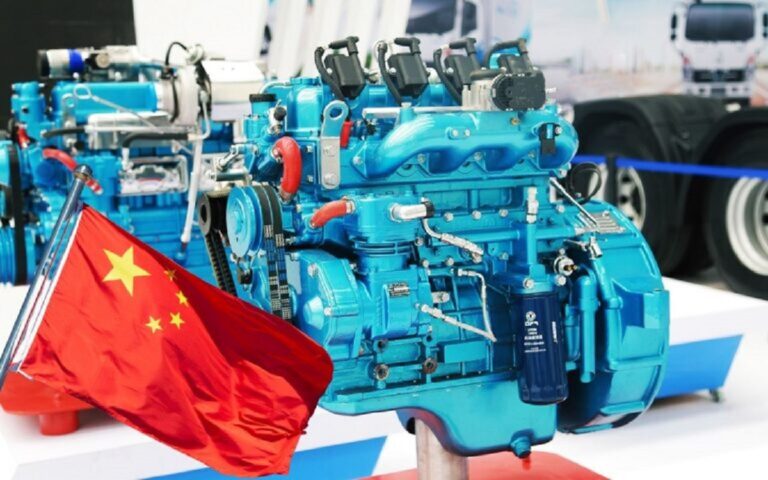In the world of innovation, it’s often the unexpected discoveries that have the most profound impact. Recently, China made a breakthrough that could redefine the future of energy and transportation. The country has turned to methanol, derived from coal, as a potential sustainable fuel that could reduce our reliance on oil and possibly lead to the next generation of combustion engines. Known as the new “black gold,” this unexpected alternative fuel could revolutionize industries far beyond just energy.
A Major Leap Forward for Geely
One of the companies leading the charge in this new energy era is Geely, one of China’s largest automotive manufacturers. Geely has introduced a pioneering vehicle powered by methanol, and this move marks a key milestone in the automotive industry. It’s like when an artist releases an album that takes their career to new heights—Geely’s innovative step signals a turning point for the future of cars.
I remember attending an expo where Geely’s booth was abuzz with excitement. The team was eager to share how their methanol-powered vehicle could significantly reduce emissions without compromising on performance. The energy and dedication from their engineers were palpable, and it was clear that Geely is not just reacting to trends—they’re setting them.
China’s “Black Gold”: Coal
China’s vast reserves of coal have often been both a blessing and a challenge. With limited oil reserves, the country has creatively turned to methanol as a cleaner, more sustainable alternative. By converting coal into methanol, China is making use of its abundant resources in an environmentally friendly way, positioning itself as a global leader in methanol production. This process mirrors the way musicians take older melodies and turn them into something fresh and groundbreaking—repurposing coal to create a more sustainable future.
The Technology Behind Methanol
The conversion of coal into methanol is no small feat. It involves advanced technology and ingenuity, much like the meticulous creation of a perfect song. Geely’s process focuses on producing a fuel that burns cleaner than traditional fuels, significantly reducing harmful emissions. According to Geely engineers, the improvements made to the combustion process are as detailed as crafting a musical masterpiece, where every adjustment helps perfect the final product.
The technology behind methanol is not just efficient—it’s sustainable. By prioritizing efficiency and reducing the environmental impact, methanol becomes a crucial player in the fight against air pollution.
Strategizing Methanol Adoption
For methanol to truly replace oil, it requires more than just innovative vehicles. Infrastructure development is key, and Geely is already laying the groundwork. They’re not just producing methanol-powered cars—they’re also investing in methanol refueling stations to make the transition smoother for consumers. It’s much like designing an entire concert venue: from stage design to sound systems, everything needs to work together to create a seamless experience. In the same way, Geely is building a comprehensive system to support the widespread adoption of methanol as a fuel.
Environmental and Economic Impacts
The potential environmental benefits of methanol are significant. By reducing carbon dioxide emissions, it plays a vital role in the global effort to combat climate change. Economically, methanol is also cost-effective, which could lower operational costs for vehicle owners and make sustainable transportation more accessible. According to the International Energy Agency (IEA), methanol has the potential to significantly reduce global greenhouse gas emissions.
Geely’s focus on making transportation both affordable and eco-friendly is setting a new standard for the industry.
The Iceland Pilot Project
To prove the reliability and efficiency of methanol, Geely launched a pilot project in Iceland, testing their vehicles in the country’s harsh conditions. The success of this project showed the robustness of methanol-powered vehicles, confirming that they could thrive in diverse environments. This testing has paved the way for further European expansion, demonstrating methanol’s adaptability across climates and regions.
I recall hearing engineers discuss the challenges they faced during the Iceland test. It was a bit like performing live in front of a tough crowd—yet the methanol-powered vehicle excelled under pressure, proving its resilience.
The Future of Methanol and Beyond
Geely is not stopping at methanol. The company is actively exploring other alcohol-based fuels and methanol fuel cell technologies that promise even lower emissions and greater efficiency. These innovations could create a future of vehicles that are not only cleaner but also more sustainable and efficient. By pushing the boundaries of what’s possible, Geely is leading the way toward a more sustainable automotive industry.
Just like an artist continually experimenting with new sounds, Geely’s ongoing exploration ensures they stay at the cutting edge of the automotive world.
Final Thoughts
China’s embrace of methanol as a potential replacement for oil is a game-changer for the energy and automotive industries. Geely’s leadership in this initiative demonstrates the power of innovation in shaping the future of transportation. Much like how a groundbreaking album can reshape a musical genre, methanol has the potential to redefine the automotive landscape, making the world cleaner and more sustainable.
What do you think about alternative fuels like methanol? Join the conversation and share your thoughts—how do you see innovations like these shaping the future of sustainable energy and transportation?






